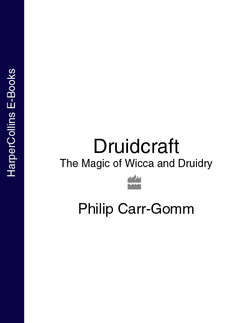Читать книгу Druidcraft: The Magic of Wicca and Druidry - Philip Carr-Gomm - Страница 9
The World of the Wise Folk
ОглавлениеWiccans call their tradition ‘The Craft of the Wise’, and the historic figures with whom many people identify most strongly are those in a community who were called upon to offer cures, help deliver babies and assist those dying, find people or objects with psychic sight, and to help in times of individual or communal difficulty. Your spouse is sleeping with another person; there has been no rain on your land for months; your cattle are dying from a mysterious disease; your best knife has been stolen; your baby’s cough will not go away; you know you are dying and are frightened – all these are problems that needed to be faced in the past, just as they need to be faced today. Nowadays we turn to scientists, counsellors, doctors, vets, police officers and priests. In the old days, we went to those men and women who knew about the mysteries of life, who were called to heal and to help. Through their own experience, through communion with spirits and teachers from the Otherworld, and through training from those who had been drawn to the Ways before them, they would each come to be known and respected as the local wise woman or man of their community. In parts of Britain they were known as Cunning Men and Women, from the root word ‘con’ or ‘ken’, which means ‘to know’. They were the wise ones, the people with ‘Knowledge’.
Historians now believe that it is unlikely that these people ever met together in ‘covens’ to work magic in the way that witch finders and modern writers have described. Instead, it seems far more likely that they worked as the local wise person, using their knowledge of spellcraft, herbalism and natural magic to help the local community in the ways described. It is also likely that they trained one or two other people in their craft, often from within their own family. Clearly, the Cunning Folk were in positions of great influence within their community. They seemed to possess the power of life and death, and of secret knowledge, and if they failed to save a life or if a villager grew worse under their care, one can imagine the hatred this might have provoked. Powerful people evoke respect and admiration, but they can soon be turned upon with a fury that matches in intensity the awe in which they are held. To become a Cunning person required devotion and courage, as well as both practical and psychic skills. As with all professions that require the use of power, there are always unscrupulous practitioners who will prey on the gullibility and superstitions of others, and who will do anything for money or favours, hence the fear of ‘wicked Witches’, ‘evil magicians’ – people who will, for a price, use their abilities not to heal but to harm.
